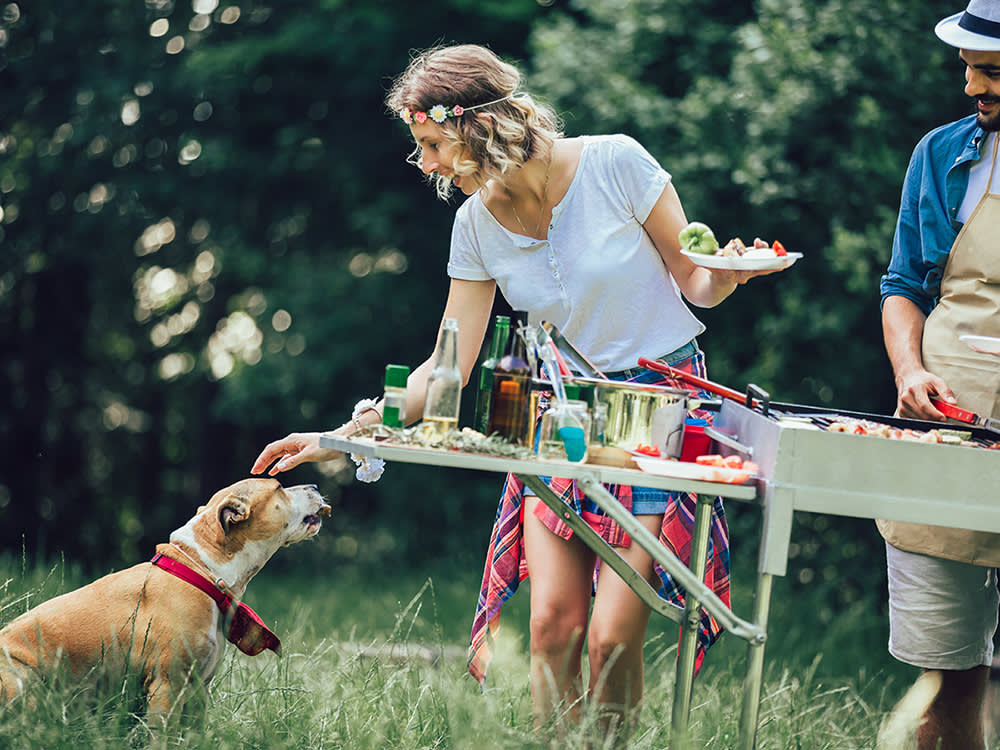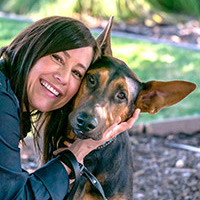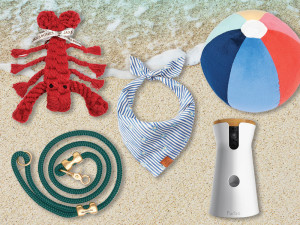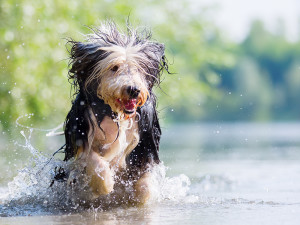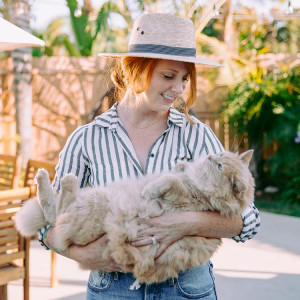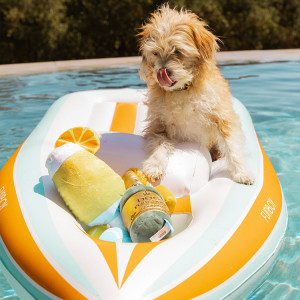9 Common Memorial Day Weekend Hazards That Are Dangerous for Pets
It’s the unofficial start of summer, and you don’t want to spend it at the emergency vet.
Memorial Day marks the (technically unofficial) start of summer. We grill, we camp out at the local parade, we take our first dips in the pool, and we generally allow vitamin D back into our lives. But before the merriment begins, there are a few concerns that pet parents should keep in mind. Otherwise, they could end up spending the long weekend in the ER waiting room while their pet is treated for an array of holiday-induced emergencies.
I’ve seen pets come in with serious lacerations from jumping through glass windows, high-rise fall injuries from leaping from balconies, car-impact trauma from attempting to flee from large crowds, dietary indiscretions from stealing scraps from the grill, and cases of severe anxiety due to overwhelming stimulation.
In addition to the trauma that I see, I also receive many phone calls from distressed pet parents trying to locate their lost dog or cat after they’ve run away from home in a panicked state. Sorry, didn’t mean to completely freak you out. Just follow these nine tips to keep tabs on your pet this Memorial Day weekend, so the only thing you have to worry about is not burning the burgers.
Keep your pet safe and secure (read: inside).
You might think of the Fourth of July when you think of fireworks, but plenty of people set them off at Memorial Day parades and celebrations, too. Needless to say, the dazzling displays can be more than a little distressing for dogs — and anxious dogs are known to bolt. It’s best to keep your pet indoors, away from the noise or any opportunity to run. If you plan to go to a friend’s for festivities, it’s best to leave your dog at home.
How much do you spend on your pet per year?
If your pup is crate-trained, you can put them in their crate and cover it with a blanket for an extra feeling of security. Simple steps like turning on the TV and closing the curtains can help block out the busy sights and sounds outside.
Make sure your pet is microchipped (and registered).
It’s not fun to think about, but in the scenario that your dog does escape, you want to be sure that your pet can easily be identified. Keep your pet collared with their name tag on; if you don’t have one already, most pet supply stores can make one on the spot. And be sure your pup is microchipped — microchipped pets are four times more likely to be returned home if they go missing.
That said, some microchipped animals still struggle to find their way home because their microchip isn’t registered with a national microchip registry, or because the associated contact information isn’t up to date. Before the weekend, double check that your pet’s microchip is registered and your address and phone number are current. And remember, a microchip is not a GPS device, like Whistle offersopens in new tab. Microchipping only works if someone finds your lost pet and takes them to a vet or shelter to be scanned.
Avert anxiety-induced behaviors.
Pets often try to relieve anxiety by chewing, so make sure confined pets do not have access to anything that they could choke or otherwise injure themselves on. Crating can be a temporary solution, but keep in mind that dogs shouldn’t be crated for more than four hours, and pups with destructive tendencies should be monitored even while they’re crated.
I have seen injuries as mild as broken toenails from trying to “dig out” from their crates to more extreme cases of mouth trauma and fractured teeth from biting the bars to escape. Don’t try crating a dog for the first time on Memorial Day — it will only add to their stress. Instead, distract your dog with an interactive puzzle toy or frozen Kong.
Beware of barbecue dangers.
No matter how sweetly they gaze at you with those puppy eyes, don’t feed your dog scraps from the grill, and be sure to keep garbage bags out of their reach. Some Memorial Day favorites are toxic — and top of those, other classics, like chicken bones and corn cobs, are choking hazards. Even other seemingly innocuous snacks can lead to pancreatitis, gastroenteritis, and intestinal obstructions that may require emergency surgery. And absolutely do not give your dog beer — hops can cause hyperthermia, vomiting, abnormal clotting, coma, and even death.
Prioritize pool safety.
No matter how proficient your dog’s doggie paddle is, it’s safest to avoid swimming this weekend. Every body of water has its unique risks, from blue-green algae in lakes to strong currents in the ocean. But there are also hidden hazards in your own backyard pool such as water intoxication, aka dry drowning. If your pup wants to take a dip to cool off and you’re able to keep an eye on them, consider a life jacket or other flotation devices for dogs for added peace of mind. While chlorinated pool water is relatively safe to swallow in small amounts, chlorine tablets in their concentrated form are poisonous.
Stay cool and avoid heatstroke.
The sun’s finally out, and with temperatures on the rise, heatstroke is a very real risk for dogs. Be sure your pup has access to cold water and shade, don’t leave them in the sun for an extended period of time, and keep an eye out for symptoms of heatstroke, including a bright red or purple tongue, excessive panting or drooling, or increased heart rate. Brachycephalic dogs, such as Bulldogs and Pugs, are especially at risk because their short snouts make panting (a dog’s natural cooling mechanism) extra challenging. They often exhibit additional signs of overheating like wobbling or vomiting.
If you notice any of these symptoms, move your dog to an air-conditioned environment and cover them with a wet towel ASAP. If they don’t cool down and stop panting, take them to an ER vet as heatstroke (again, particularly in certain breeds) can be fatal.
Hold the bug spray.
Only use sunscreen that is specifically intended for animal use, and don’t spray your pet with insect repellant; human products can often be toxic to dogs. Exposure to bug spray that contains DEET can lead to neurological problems, and ingestion of sunscreen products can result in drooling, vomiting, diarrhea, excessive thirst, and lethargy. Citronella candles, insect coils, and oil-based insect repellents can also cause stomach irritation and possibly central nervous system depression. There are options, though. Look for pet-safe, all-natural mosquito repellants like those made by Wondercide.
Keep matches and lighter fluid out of reach.
This should be obvious, but you’d be surprised! Lighter fluid can be irritating to the skin. If ingested, it can cause issues in a dog’s stomach and intestines, as well as aspiration pneumonia if it is inhaled. And certain types of matches contain chlorates that can damage blood cells and result in difficulty breathing or kidney disease in severe cases. So, after firing up the grill, put everything away securely.
Consider calming aids to help them chill.
Some pets respond well to situational sedatives as needed, such as Acepromazine. If you already know your pet gets anxious in these situations, make an appointment with your veterinarian ahead of time to have your pet examined and a sedative dispensed (or, if your pet has had a vet visit in the past year and is otherwise healthy, they will often go ahead and dispense this medication for you).
There are also herbal over-the-counter remedies for pets afraid of fireworks such as Feliway (cats) and Trazodone (dogs), which can offer homeopathic relaxing effects to your pets. Thundershirts can also be very helpful for reducing anxiety caused by the noise of fireworks.
